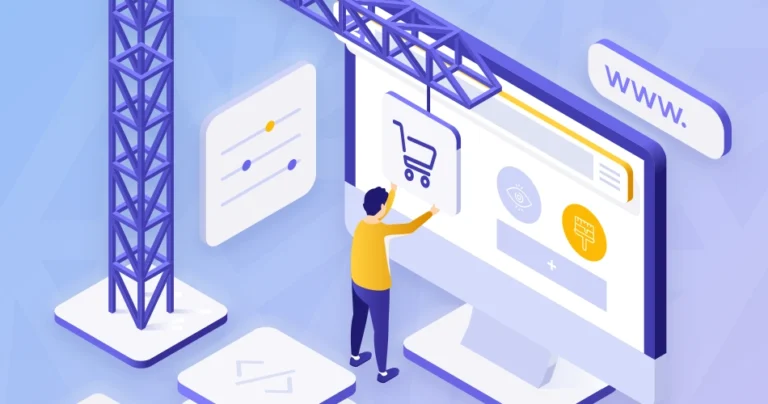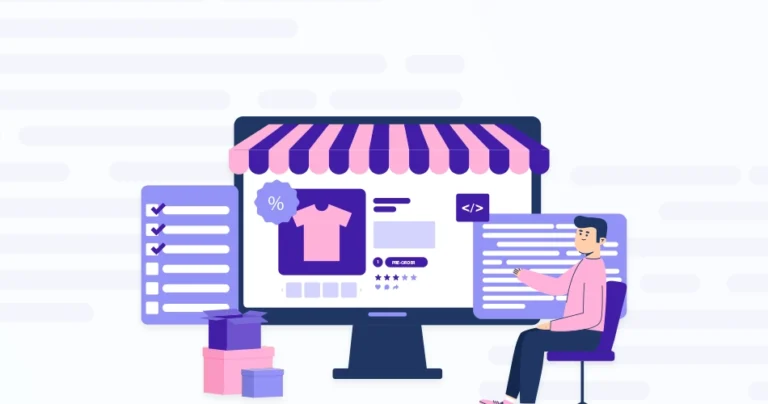Home Hire eCommerce Developers
Build a Well-Performing eCommerce Store—Not Just a Functional One
Why Businesses Hire BrainSpate’s eCommerce Developers
Other developers can build you a functional online store – we go beyond that to build a growth engine.
Rather than a one-size-fits-all approach, we design fully customized solutions tailored to the diverse needs of your business. Hire eCommerce developers and get exactly what your brand deserves: conversion-focused code, seamless UX, and scalable architecture.
| Feature | Just Functional Store | Well-Performing Store |
|---|---|---|
| Mobile-First Design | ||
| Fast, App-like Page Load Speeds | ||
| High-Quality Product Images & Video | ||
| Advanced Product Search & Filters | ||
| Personalized Recommendations | ||
| Abandoned Cart Recovery | ||
| Live Chat Support | ||
| Real-Time Inventory Automation | ||
| Marketing Integrations (Email, Ads) |
Top Services Our eCommerce Developers for Hire Excel In
At BrainSpate, we build high-performance, secure eCommerce engines for the competitive US market. Hire dedicated eCommerce developers for captivating, mobile-first experiences and seamless payment integrations. We create a unified ecosystem that accelerates your revenue.
Headless Commerce Development
Go beyond traditional with flexible, API-driven stores.
- API-first architecture
- React/Vue.js frontend development
- Omnichannel experiences
- Performance optimization
Custom eCommerce Development
Hire eCommerce Web Developers and get customized solutions.
- Tailor-made ecommerce solutions
- Microservices architecture
- Progressive Web Apps (PWA)
- Mobile-first development
Payment Gateway Integration
Seamless, secure payments adapted for your customers.
- Stripe, PayPal, Square integration
- Multi-currency support
- PCI DSS compliance
- Fraud detection systems
Third-Party Integrations
Connect your store with tools that drive efficiency and growth.
- ERP/CRM system connections
- Inventory management systems
- Shipping provider integrations
- Marketing automation tools
Platform Migration Services
Move to modern platforms with zero business disruption.
- Legacy system modernization
- Data migration with zero downtime
- SEO preservation during migration
- Performance optimization
Performance & SEO Optimization
Boost speed, ranking, and conversions with holistic improvement.
- Core Web Vitals improvement
- Mobile responsiveness
- Search engine optimization
- Conversion rate optimization
B2B eCommerce Development
Advanced features to simplify complex business sales.
- Complex pricing structures
- Quote management systems
- Account-based purchasing
- Bulk ordering capabilities
Enterprise eCommerce Solutions
Enterprise-grade power to handle scale and complexity.
- Scalable architecture
- High-traffic handling
- Advanced analytics
- Multi-vendor marketplace development
Maintenance & Support
Stay ahead with proactive monitoring and quick fixes.
- 24/7 technical support
- Regular updates and patches
- Performance monitoring
- Bug fixes and enhancements
Choose the Right eCommerce Developer for Your Project
Hire certified eCommerce experts with proven capabilities to build high-performing online stores. Based on your project goals, we’ll help you select the most suitable developer whose skills and experience align perfectly with your business needs.
$2,300 /Month
(160 Hours / Month)
3+ Years
Experience
20+ Projects
Completed
- Design eCommerce website layouts
- Codes with HTML, CSS, JS
- Sets up basic online stores
- Customizes pre-built themes
- Tests site functionality
Expert in
Hire Now- eStore Setup
- Theme Tweaks
- Design Optimization
$3,200 /Month
(160 Hours / Month)
8+ Years
Experience
80+ Projects
Completed
- Develops scalable platforms
- Integrates ERP and CRM systems
- Implements AI-driven features
- Ensures top performance speeds
- Guides tech stack strategy
Expert in
Hire Now- ERP & CRM
- Magento
- Performance Tuning
How to Hire an eCommerce Developer Simplified
Starting a new eCommerce website from scratch or working on an existing project? You can onboard an E-commerce developer with BrainSpate in a jiffy.
01
Share Your Requirements
First, share your project goals, technical preferences, and any specific developer skills required.
02
Get Matched with Experts
We’ll provide you with a list of dedicated E-commerce developers, allowing you to find the right one according to your project requirements.
03
Start Your Project
Finally, select the best developer and engagement plan, finalize the contract, and start the project with full support.
Schedule Your 1-on-1 eCommerce Expert Consultation
With BrainSpate, you can stop guessing and start building the eStore with precision. Get a 1-on-1 consultation with our certified eCommerce developers. We’ll help transform your business goals into an actionable, scalable technical plan.
Success Stories with Our Best eCommerce Developers
Over the past 5+ years, BrainSpate has worked with a variety of clients, of almost all sizes and from different industrial domains and helped with top-notch eCommerce development services. Here are a few of our top works.
eCommerce Website Experts with Multi-Platform Development Skills
Hire eCommerce web developers with expertise in e-commerce store development platforms like Shopify, WooCommerce, Magento, BigCommerce, SquareSpace, and Salesforce.
Our experts combine in-depth technical know-how with the top market trends and insights. That ensures your store will be well-optimized for performance, security, and a seamless user experience.

Shopify
A leader among e-commerce platforms, Shopify is ideal for delivering user-friendly, all-in-one solutions. It offers rapid setup, powerful sales tools, and extensive integrations, making it perfect for seamless scalability.

WooCommerce
A part of the WordPress ecosystem, WooCommerce offers full customization, a range of plugins, and cost-effective flexibility for content-rich eStores.

Squarespace
This is an excellent platform for creative brands and service-based businesses. With it, you can prioritize beautiful design, portfolio features, and simple e-stores without advanced customization.

BigCommerce
BigCommerce offers built-in features, advanced SEO capabilities, multi-channel selling, and no transaction fees. Plus, its enterprise-grade performance is perfect for growth-focused companies.

Magento (Adobe Commerce)
With Magento, you get powerful customization, robust B2B features, scalability, deep integration, and more. That’s perfect for enterprise-level businesses.

Salesforce Commerce Cloud
If you want a scalable cloud solution, Salesforce Commerce Cloud is what you need. Additionally, it provides advanced personalization, AI-driven insights, and seamless integration with CRM and marketing tools.
Flexible Hiring Models to Hire Offshore eCommerce Web Developers
BrainSpate provides versatile engagement models tailored to meet the diverse needs of your eCommerce project. Choose the best fit for your online store development, ensuring efficiency and cost-effectiveness at every step.
Fixed Cost Model
Clear requirements? Fixed cost for precise eStore delivery.

Hourly Cost Model
Need hourly eCommerce expertise? Flexible support is available.

Monthly Cost Model
Long-term eStore assistance? The monthly plan offers consistency.
BrainSpate's eCommerce Expertise for Business Models
Regardless of your preferred business model, hire an eCommerce developer with BrainSpate — the best provider of eCommerce development services globally. Our team brings years of experience across B2B, B2C, D2C, marketplaces, and subscription-based platforms, ensuring your online store is built to perform and scale.
- B2B eCommerce portals
- B2C storefronts
- D2C branded stores
- Multi-vendor marketplaces
- Subscription-based commerce
- Wholesale & bulk order platforms
- Online booking/selling systems
- Mobile commerce solutions
- Hybrid models (retail and wholesale)
- Omnichannel platforms
See What Our Clients Have to Say
Don't just take our word for it. Take a look at what our clients have to say about our eCommerce services.
A Smooth And Successful Collaboration
BrainSpate was a pleasure to work with. Their communication was excellent, they were open to feedback throughout the project, and they brought our creative vision to life on time. The collaboration was effortless, and the results exceeded our expectations.
Shehrish
Marketing Manager at Roof Tech
A Confident Marketplace Launch
Building our online jewelry marketplace would not have been possible without the support of BrainSpate's eCommerce experts. They helped define the right technology and core features, making the entire process smooth and reassuring from start to finish.
Raghav
Founder at BuyMyShine
Recent Blogs

7 Best E-commerce Website Builders for 2026
- Guide
13 Min Read
FAQs About Hiring eCommerce Developers
Covers key details you may want to know before working with an eCommerce development team, including developer expertise, supported platforms, timelines, and post-launch support.
1. What types of eCommerce projects can your developers handle?
Our team works on a wide range of projects, including custom store development, theme customization, payment gateway setup, third-party integrations, performance improvements, and store migrations. Both small updates and full-scale builds are supported.
2. Which eCommerce platforms do your developers work with?
Experience includes platforms such as Shopify, WooCommerce, Magento (Adobe Commerce), BigCommerce, and custom eCommerce solutions. Platform selection depends on your business needs and project scope.
3. Can I hire dedicated eCommerce developers on a monthly basis?
Yes. Dedicated resources are available on a monthly, hourly, or fixed-cost basis. Monthly hiring is ideal for ongoing development, feature updates, and store maintenance.
4. How do I choose the right eCommerce developer for my project?
You can share your goals, platform preference, and technical requirements. Based on this, a suitable developer is matched whose experience aligns with your project needs.
5. How quickly can I start working with a developer?
In most cases, onboarding can begin shortly after requirements and engagement terms are finalized, allowing projects to move forward without unnecessary delays.
6. Will I get ongoing support after the store is launched?
Yes. Ongoing support is available for updates, issue resolution, performance monitoring, and feature enhancements to keep the store running smoothly.
7. Why should I hire developers instead of using ready-made tools?
Ready-made tools work for basic setups, but custom development offers better flexibility, control, and scalability. This approach supports long-term growth and a more tailored user experience.
















